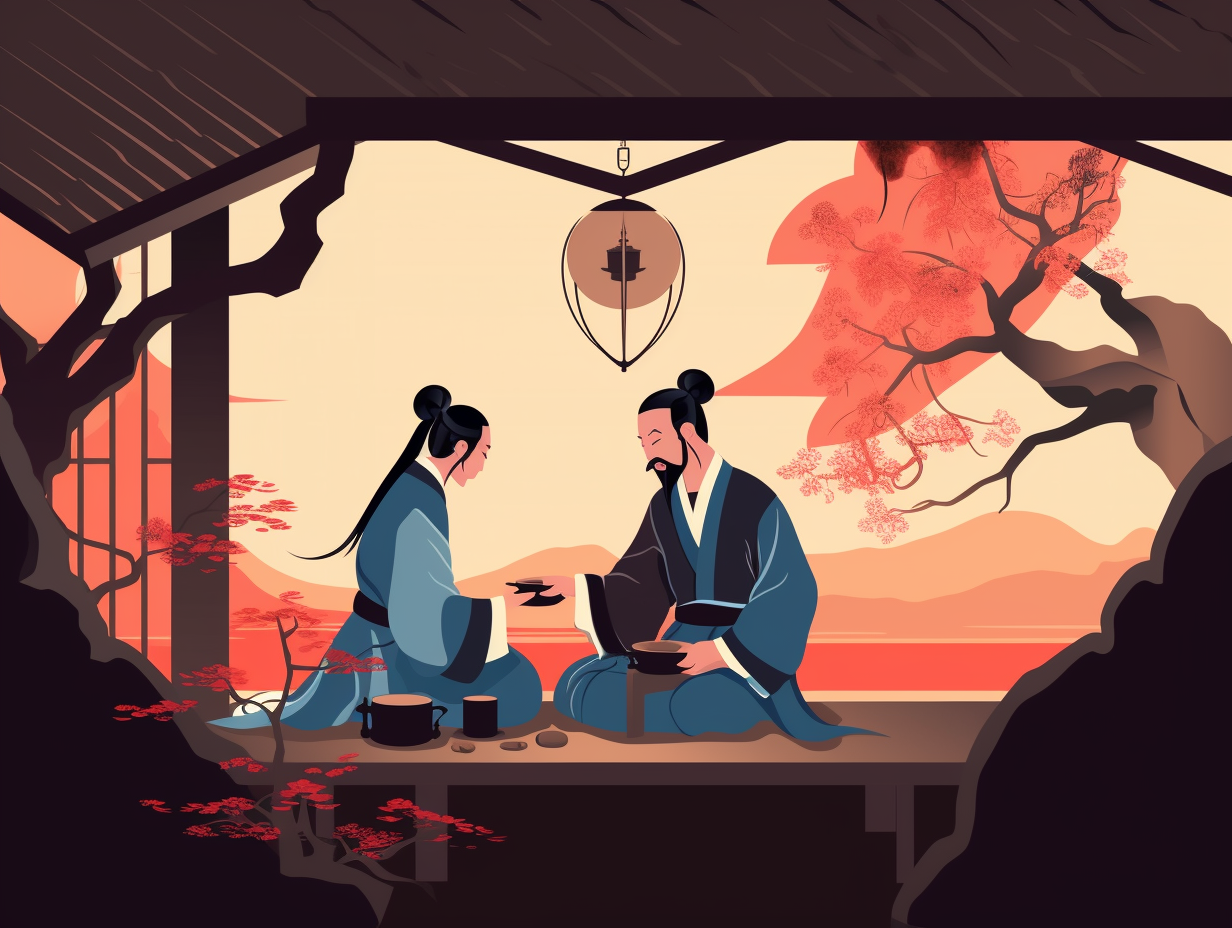Discover Legalism: Top 11 Fun Facts About the Ancient Chinese Philosophy That Shaped a Nation

1. Survival of the Strictest
In a time when "survival of the strictest" could have been China's motto, the Legalists paved the way with their no-nonsense approach to law and order: Legalism was a philosophy that emphasized the importance of harsh laws and strong leadership in maintaining order in Chinese society during a time of unrest, while also promoting agriculture and military strength as a means of strengthening the state and its authority.
Source => khanacademy.org
2. Judge Judy Meets Li Si
If you think Judge Judy is tough, wait until you meet her ancient Chinese predecessor: Li Si, chief adviser to Qin Shi Huangdi, not only helped shape the legal system of unified China but made sure punishments were as entertaining as they were severe, ranging from fines and hard labor to bodily mutilation or execution, all in the name of creating a stable, efficient society that emphasized the ruler's power and control.
Source => crf-usa.org

Did you know Confucius was once an underrated life coach before becoming a renowned philosopher? Discover his fascinating journey and the impact of his teachings on Chinese classic texts! 🧐✍📚
=> Fun Facts about Confucianism
3. Tattoo Punishers
Before there were "tattoo artists," there were ancient tattoo punishers: Legalism embraced collective punishment, using methods such as tattooing or branding to mark offenders, and formed a police state under the Qin Dynasty where surveillance and strict application of the law maintained social order.
Source => khanacademy.org
4. Foot in Mouth Punishments
Talk about a "foot in mouth" moment: During the Qin dynasty, under Shi Huangdi's legalism ideology, punishments ranged from tattooing one's face and amputating feet to beheading or cutting offenders in two at the waist for really biting off more than they could chew!
Source => crf-usa.org

5. Chariots Aligned
Forget having your ducks in a row, Emperor Qin Shi Huangdi had his chariots impeccably aligned: The Legalism-loving ruler standardized everything, including currency, written language, and even chariot axle widths, resulting in an incredibly unified and regulated Chinese society under his reign.
Source => study.com
6. Legalist Netflix and Chill
In a world where "Netflix and chill" meant drafting laws and regulations, the Legalists believed nothing was above the mighty scroll: these ancient scholars emphasized effectiveness and practical solutions in governance, and appreciated the concept of art only when it served a useful purpose rather than mere adornment or self-gratification.
Source => plato.stanford.edu
7. Law and Order: Ancient China
Move over Law and Order, the ancient Chinese Legalists have entered the chat: Contrary to popular belief, they didn't champion unrestrained power but stressed a sturdy system of laws and harsh punishments, all in the name of deterring crime and promoting social stability.
Source => worldhistory.org
8. Warring States Lemonade
When life handed them the Warring States Period, Legalists made a nation-sized lemonade: those crafty economists not only quenched China's thirst for unity by forming the Qin Empire, but also squeezed out the competition with their hearty dose of Confucian economics, fertilizer and free markets – just don't let the juice get in your eyes, because that oppression sting will get you every time!
Source => e-ir.info
9. Ruler's Dinner Party Charm
Oh, the lengths one goes to impress at dinner parties: Ancient Chinese legalism, or "fajia," wasn't just about being the party pooper with rules and regulations. Nay: It also highlighted the significance of the ruler's charm and personal appeal, the right mix to keep the social soiree in order and snag a spot on the list of history's most charismatic leaders!
Source => plato.stanford.edu

10. Book-Burning Extravaganza
You know how we sweep things under the rug to maintain appearances? Well, back in the Qin Dynasty, they put on quite the show: Emperor Shi Huangdi ordered a book-burning extravaganza to tidy up the empire's unorthodox clutter! Behind the fiery scenes: This wasn't just a power-hungry act of censorship, but rather a grand, albeit destructive, strategy to promote unity and standardize thought throughout the kingdom.
Source => ivypanda.com
11. Putting "Fun" in Funeral Pyres
When the Qin Dynasty partied, they put the "fun" in "funeral pyres," making sure everyone present had a smoking good time, especially the philosophers: During this era, Legalism was the official philosophy and Confucianism was banned, leading to the burning of non-Legalist books and the execution of philosophers, writers, and teachers. However, the people's displeasure in the regime led to the shift back to Confucianism after the Qin Dynasty's fall, leaving Legalism in the ashes of history.
Source => worldhistory.org
Related Fun Facts




















